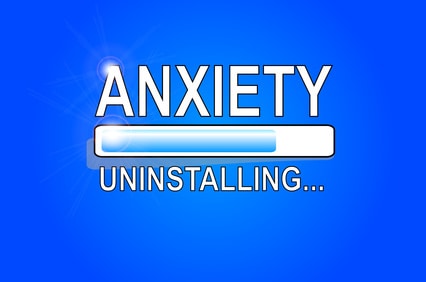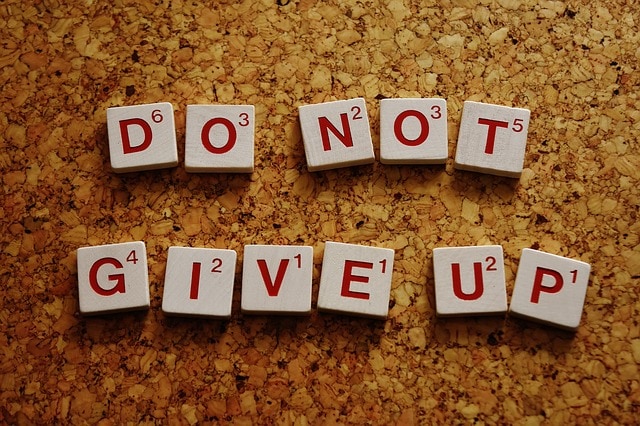A few simple strategies can make a big difference
Table of Contents
As a busy full-time hypnotherapist, I spend a lot of time helping people cope with anxiety. The progress we make is sometimes undermined by those closest to them thinking they can just get over it or telling them to ‘pull themselves together’.
This is compounded by the fact that anxiety is often regarded as a weakness or a flaw. If you have a friend or family member suffering from anxiety, you can support their recovery by following some simple guidelines.
Well-meaning advice can make matters worse as anxiety won’t generally go away on its own and doesn’t always respond to logic or reason. It can be physically and emotionally draining living with someone with anxiety because it’s difficult to know how to help them. Symptoms are often confusing and frustrating, leading to conflict in relationships and affecting the quality of life of all concerned.
With that in mind, the following advice will enable you to better understand and manage the impact of anxiety on both yourself and whoever around you are suffering from it.

1. Anxiety doesn’t have to be forever
Anxiety is a transitional state of mind that happens to us all and doesn’t have to define the sufferer. It is a natural response to a perceived threat and can be better dealt with by separating the symptoms from the person experiencing them. So, instead of regarding them as an ‘anxious person’, think of their anxiety as something they are experiencing and can recover from.
2. They will feel drained
Anxiety can be exhausting. Fear causes physical tension which makes us tired and irritable. It is energy sapping and drains motivation. Bear in mind that anxiety can make everything seem like hard work so the simplest of daily tasks may be too difficult to get done on time or be too much to manage efficiently. Make allowances when you are able and avoid criticising as this can add to the anxiety.
3. Avoidance is normal with anxiety
Anyone suffering from anxiety will go to great lengths to avoid events or circumstances which trigger panic or fear. This reaction can severely restrict how you spend your time together.It’s a primeval response to anything scary and is automatically set off by the subconscious, tripping a chain reaction of symptoms that, once established by repetitious exposure to the triggers, become hard to control. The sufferer then forms a powerful subconscious belief which sets them up to anticipate anxiety whenever certain buttons are pressed. That belief can become so powerful that no amount of reassurance or persuasion will budge it.
This survival instinct is an essential warning system hardwired into our genetic makeup. The problem is, it evolved to enable us to defend ourselves against predators which means it’s neither relevant or useful when dealing with the pressures of this day and age. It helps to understand that reason or logic will not change this primitive response.

4. Anxiety isn’t stupid or silly
Anxiety and phobias are not always rational and can seem foolish. Telling anyone with anxiety not to be stupid and there’s nothing to worry about really doesn’t help. It simply causes confidence-sapping embarrassment which makes the anxiety worse. Encourage the sufferer to talk about their fear in a calm and non-judgemental way and you’ll help them to better understand it. The idea is not to shame them out of their anxiety but to help them come to terms with it and allow the subconscious mind to start changing the underlying beliefs.
5. They may not want to talk about it
People with anxiety are usually good at explaining their symptoms but they may not like talking about them if they’ve been criticised for them in the past. The trick is, to help them express their thoughts and feelings and listen very carefully to what they have to say and how they say it.
You’ll notice the emotional impact of whatever the anxiety is about and can offer reassurance and comfort when you do. Bear in mind that there is a big difference between thoughts and feelings. Thoughts are generally rational and fact based whilst irrational feelings tend to fuel anxiety.
6.They don’t want to think about doughnuts!
Asking people with anxiety to confirm they are okay all the time is not a good idea. Often they are far from okay. It’s a bit like asking a dieter if they’re missing doughnuts. It doesn’t help. Just being there for them is often the best you can do as that will help them feel supported and safe.
If they ask you to leave them alone, leave them alone! They are experienced at handling their anxiety so let them work through it however they see fit.
7. Your sacrifices are appreciated
People suffering from anxiety appreciate your support and understand that sometimes their condition means you are making sacrifices. Anxiety is difficult for all concerned, including you. Anyone with anxiety is all too aware of the impact it has on those around them and will often feel guilty. Remember, it’s not their fault, so never try to guilt them into doing something you want to do.
8. They are on red alert
Anxiety is created by traumatic or frightening situations or circumstances which stick in the mind as threatening or dangerous. Once those beliefs are formed, they serve as a subconscious warning system which puts mind and body on ‘red alert’. This makes the brain super-sensitive and hyper-vigilant to any perceived threat, leading to catastrophic overthinking. By imagining the worst thing and then mentally rehearsing it happening, the anxious mind is trapped in a cycle of feeding the fear.

9. Change is hard for them
We are all resistant to change but it’s much harder for those suffering from anxiety as the familiar makes them feel safe and the unknown can be terrifying. Once they’re outside their comfort zone it can take them a lot longer to settle down after any significant change or upheaval.
Just remember to have a little more patience and understanding with them. They are usually trying as hard as they can.
10. Anxiety takes over
People suffering from anxiety have a lot on their minds. It takes up a lot of head space and can be a constant distraction which affects concentration, memory and decision-making. That’s because anxiety is the primary focus of their attention.
The primeval part of the brain takes control when panic is triggered and that overrides conscious analytical thinking. When confronted with someone being forgetful or inattentive, be aware that it’s not intentional and they may be too caught up in managing their anxiety to give you the time of day.
11. Distraction is the new norm
People with anxiety spend a lot of time thinking about how to cope with it. They are easily distracted by thoughts or triggers that remind them of their problems. And then, much of their time and energy is devoted to maintaining strategies to avoid the cause of their anxiety, distract themselves from it or manage its symptoms.
So, anxiety can make it difficult to focus on any tasks or goals which divert the sufferer’s attention away from keeping it at bay. This can mean that, sometimes, they’ll struggle to get a job done properly or on time.
12. Anxiety will make them stronger
Anxiety builds resilience. It creates inner resources to manage adversity and strengthens the character. Whilst anxiety is often regarded as a weakness, those suffering from it have to find the means to overcome the limitations it imposes in order to fulfil their potential and lead an interesting life. This can make life harder in general until the anxiety and its causes are resolved.
Remember, people suffering from anxiety are human too. They share many of your hopes, fears and expectations. Anxiety is a transitory state and doesn’t have to be permanent. In other words, it is fixable, with time, the right kind of help and your love and support.
